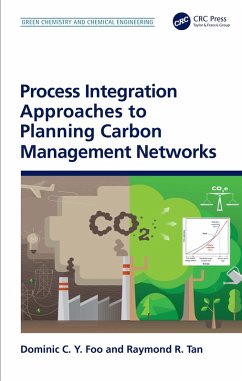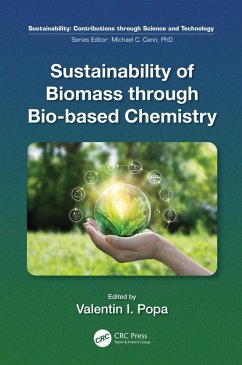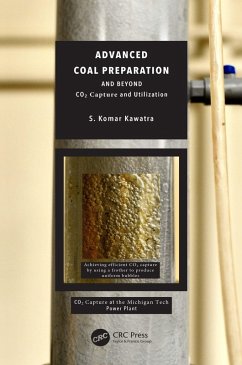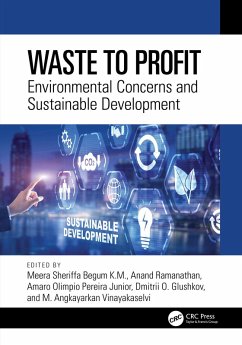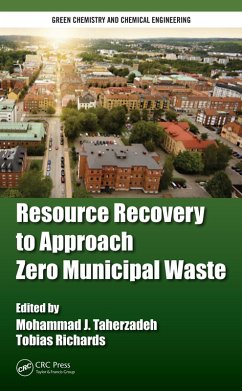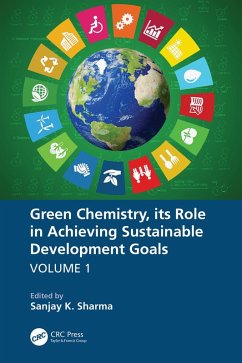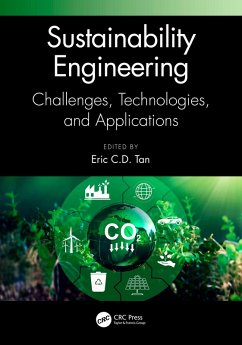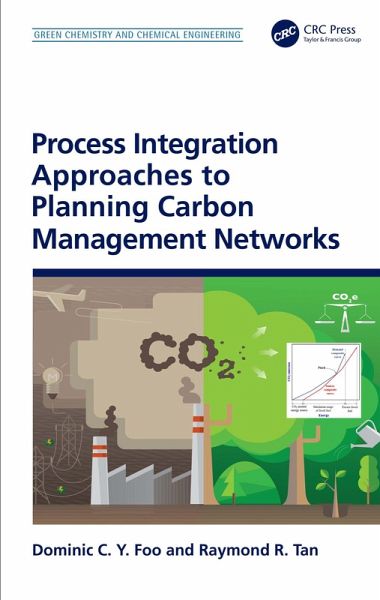
Process Integration Approaches to Planning Carbon Management Networks (eBook, PDF)
Versandkostenfrei!
Sofort per Download lieferbar
76,95 €
inkl. MwSt.
Weitere Ausgaben:

PAYBACK Punkte
38 °P sammeln!
Process Integration Approaches to Planning Carbon Management Networks provides a comprehensive treatment of carbon emissions pinch analysis (CEPA), covering the fundamentals as well as more advanced variants based on mathematical programming. A significant portion of the book is dedicated to case studies that provide a range of examples to demonstrate how CEPA can be applied to practical energy planning problems. Selected chapters also include electronic supplements (e.g., spreadsheet templates and software code) to aid the reader in applying these methods to new sets of data. This book is ide...
Process Integration Approaches to Planning Carbon Management Networks provides a comprehensive treatment of carbon emissions pinch analysis (CEPA), covering the fundamentals as well as more advanced variants based on mathematical programming. A significant portion of the book is dedicated to case studies that provide a range of examples to demonstrate how CEPA can be applied to practical energy planning problems. Selected chapters also include electronic supplements (e.g., spreadsheet templates and software code) to aid the reader in applying these methods to new sets of data. This book is ideal for academic researchers and graduate students interested in carbon-constrained energy planning models and applications.
This book
Professor Dominic Foo is a professor of process design and integration at the University of Nottingham Malaysia. He is a fellow of the Institution of Chemical Engineers, a fellow of the Academy of Science Malaysia, a chartered engineer with the UK Engineering Council, and a professional engineer with the Board of Engineers Malaysia. He works on process integration for resource conservation and CO2 reduction, with more than 400 published works. Prof. Foo is the co-editor-in-chief for Process Integration and Optimization for Sustainability, subject editor for Process Safety & Environmental Protection, and an editorial board member for several other renowned journals.
Raymond R. Tan is a professor of chemical engineering and university fellow at De La Salle University, Philippines. He is also a member of the National Academy of Science and Technology of the Philippines. His main areas of research are process systems engineering and process integration, where he has over 300 published works. Prof. Tan received his BS and MS degrees in chemical engineering and PhD in mechanical engineering from De La Salle University. He is also a co-editor-in-chief of Process Integration and Optimization for Sustainability, subject editor of Sustainable Production and Consumption, and an editorial board member of Clean Technologies and Environmental Policy.
This book
- Provides essential information on CEPA and mathematical programming
- Gives illustrative examples and case studies drawn from contemporary climatic issues
- Covers state-of-the-art methodological developments
- Discusses about applications in various countries
- Offers additional support through supplementary spreadsheet templates and software code
Professor Dominic Foo is a professor of process design and integration at the University of Nottingham Malaysia. He is a fellow of the Institution of Chemical Engineers, a fellow of the Academy of Science Malaysia, a chartered engineer with the UK Engineering Council, and a professional engineer with the Board of Engineers Malaysia. He works on process integration for resource conservation and CO2 reduction, with more than 400 published works. Prof. Foo is the co-editor-in-chief for Process Integration and Optimization for Sustainability, subject editor for Process Safety & Environmental Protection, and an editorial board member for several other renowned journals.
Raymond R. Tan is a professor of chemical engineering and university fellow at De La Salle University, Philippines. He is also a member of the National Academy of Science and Technology of the Philippines. His main areas of research are process systems engineering and process integration, where he has over 300 published works. Prof. Tan received his BS and MS degrees in chemical engineering and PhD in mechanical engineering from De La Salle University. He is also a co-editor-in-chief of Process Integration and Optimization for Sustainability, subject editor of Sustainable Production and Consumption, and an editorial board member of Clean Technologies and Environmental Policy.
Dieser Download kann aus rechtlichen Gründen nur mit Rechnungsadresse in A, B, BG, CY, CZ, D, DK, EW, E, FIN, F, GR, HR, H, IRL, I, LT, L, LR, M, NL, PL, P, R, S, SLO, SK ausgeliefert werden.





